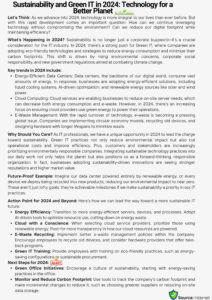
Introduction:
The year 2020 marked a pivotal moment in the history of work. The COVID-19 pandemic forced organizations worldwide to adapt rapidly, leading to a surge in remote work arrangements. What initially seemed like a temporary measure soon revealed itself as a long-term paradigm shift, fundamentally altering the dynamics of the modern workplace. In this essay, we will explore the multifaceted implications of remote work, from its evolution as a response to necessity to its transformation into a new frontier of flexibility and adaptability. We will examine strategies for success in this emerging landscape, emphasizing the importance of efficiency and empathy in navigating the new normal.
The Evolution of Remote Work:
Remote work is not a novel concept, but its widespread adoption was catalyzed by the COVID-19 pandemic. Initially viewed as a temporary solution to ensure business continuity amidst lockdowns and social distancing measures, remote work quickly gained momentum as organizations recognized its potential benefits. Beyond its utility in crisis management, remote work offers numerous advantages, including increased flexibility, reduced commuting time, and access to a broader talent pool. As technology continues to advance, remote work has become increasingly feasible, enabling seamless communication and collaboration across geographical boundaries.
Before the pandemic, remote work was often viewed with skepticism by many employers. There were concerns about productivity, accountability, and the ability to maintain company culture. However, as businesses were forced to transition to remote work almost overnight, they discovered that many of these concerns were unfounded. In fact, numerous studies have shown that remote workers are often more productive than their office-bound counterparts. Freed from the distractions of the office environment, remote workers can often focus more deeply on their tasks and complete them more efficiently.
Furthermore, remote work has enabled organizations to access talent from all over the world. With the traditional barriers of geography removed, companies can now recruit the best and brightest employees, regardless of where they are located. This has led to greater diversity and inclusivity within many organizations, as they are no longer limited to hiring from their local area.
Challenges and Opportunities:
While remote work presents significant opportunities, it also poses unique challenges. One such challenge is the blurring of boundaries between work and personal life, leading to potential burnout and decreased productivity. Without the physical separation of the office, many remote workers struggle to disconnect from work and find themselves answering emails late into the night or working on weekends. Employers must be mindful of this and encourage their employees to set boundaries and take breaks to avoid burnout.
Additionally, remote work may exacerbate feelings of isolation and disconnect among employees, particularly those accustomed to traditional office environments. The camaraderie and social interaction that often occur in the office can be difficult to replicate virtually. Employers must find ways to foster a sense of community among remote workers, whether through virtual team-building activities, regular check-ins, or creating online forums for employees to connect.
Furthermore, disparities in access to resources and technology can exacerbate existing inequalities, underscoring the need for inclusive remote work policies. Not all employees have access to high-speed internet, ergonomic home office setups, or quiet workspaces free from distractions. Employers must ensure that all employees have the tools and support they need to be successful in a remote work environment.
Despite these challenges, remote work offers opportunities for innovation and growth. By embracing remote work, organizations can tap into a global talent pool, fostering diversity and creativity within their teams. Moreover, remote work encourages autonomy and self-discipline, empowering employees to manage their time effectively and prioritize tasks based on their individual preferences and circumstances.
Strategies for Success:
To thrive in the era of remote work, organizations must adopt a holistic approach that prioritizes both efficiency and empathy. One key strategy is to establish clear communication channels and protocols to facilitate collaboration and transparency among remote teams. Leveraging technology tools such as video conferencing, project management software, and instant messaging platforms can help bridge the gap between remote employees and foster a sense of connectedness.
Furthermore, organizations should invest in training and development initiatives to equip employees with the necessary skills and competencies for remote work success. This includes providing guidance on time management, digital literacy, and remote team dynamics. Additionally, leaders should cultivate a culture of empathy and understanding, recognizing the unique challenges faced by remote workers and offering support and flexibility where needed.
In conclusion, the rise of remote work represents a paradigm shift in the modern workplace, driven by unprecedented global events and enabled by advancements in technology. While remote work presents challenges, it also offers opportunities for innovation, flexibility, and inclusivity. By embracing strategies for success that prioritize efficiency and empathy, organizations can navigate the new normal with confidence and resilience, paving the way for a more adaptable and resilient future of work.






